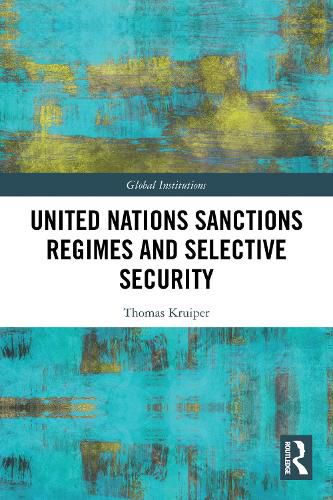Readings Newsletter
Become a Readings Member to make your shopping experience even easier.
Sign in or sign up for free!
You’re not far away from qualifying for FREE standard shipping within Australia
You’ve qualified for FREE standard shipping within Australia
The cart is loading…






This book investigates the selective nature of UN sanctions regimes with a specific focus on the post-Cold War era. Legally binding on all members, UN sanctions are the most effective and legitimate non-violent multilateral tools to respond to international security threats. They are also symbolically more powerful than unilateral or multilateral sanctions because they enjoy global support. However, while dozens of threats to international peace were met with UN sanctions since 1990, many others were not. How can we explain this incoherent approach? With a focus on the selectiveness, rather than effectiveness of UN sanctions the author reflects on the shifting geopolitical tensions between Security Council members and uses a variety of widely used academic datasets to provide a unique overview of what determines sanctions and sanctionable events. The primary audience will be scholars and students of international relations, international organizations, security studies, and political economy.
$9.00 standard shipping within Australia
FREE standard shipping within Australia for orders over $100.00
Express & International shipping calculated at checkout
This book investigates the selective nature of UN sanctions regimes with a specific focus on the post-Cold War era. Legally binding on all members, UN sanctions are the most effective and legitimate non-violent multilateral tools to respond to international security threats. They are also symbolically more powerful than unilateral or multilateral sanctions because they enjoy global support. However, while dozens of threats to international peace were met with UN sanctions since 1990, many others were not. How can we explain this incoherent approach? With a focus on the selectiveness, rather than effectiveness of UN sanctions the author reflects on the shifting geopolitical tensions between Security Council members and uses a variety of widely used academic datasets to provide a unique overview of what determines sanctions and sanctionable events. The primary audience will be scholars and students of international relations, international organizations, security studies, and political economy.